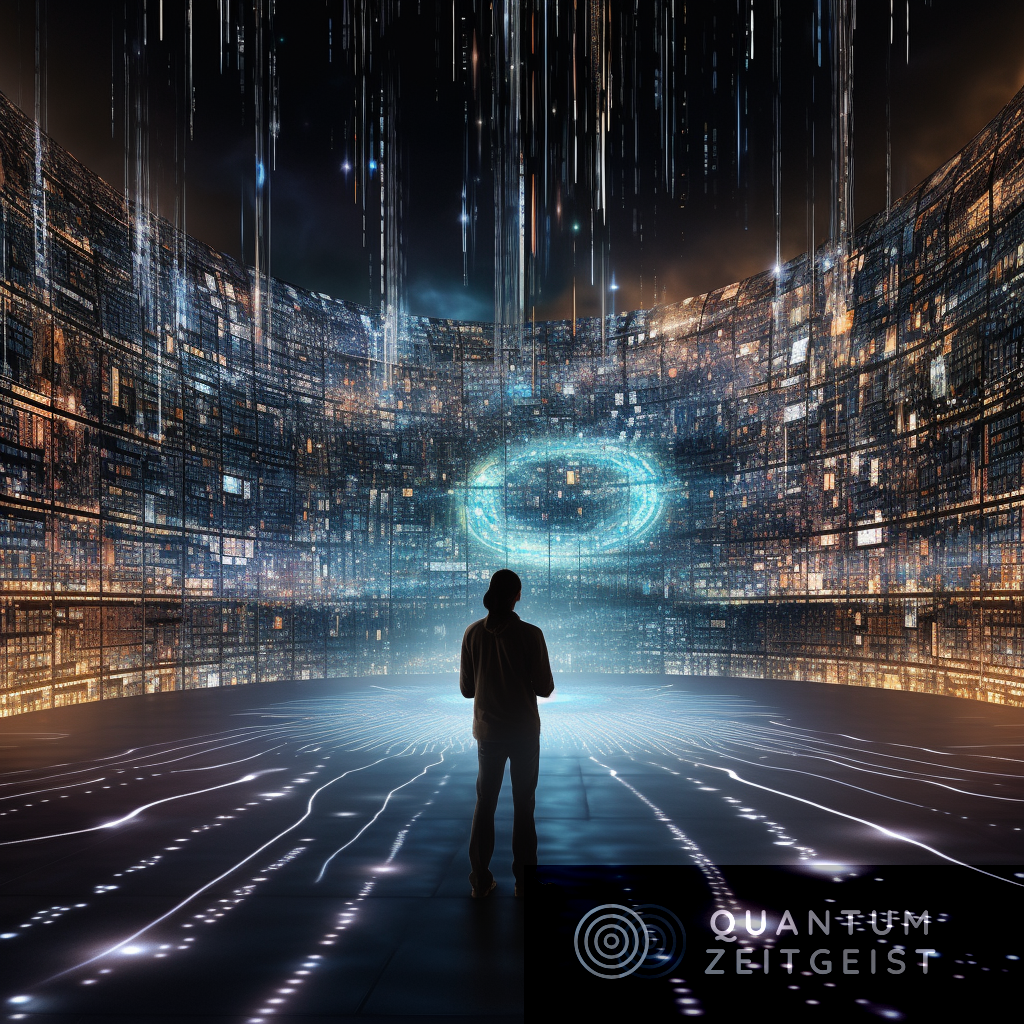Dr Melvin Vopson, a physicist at the University of Portsmouth, has explored the possibility of a new law of physics supporting the theory that humans live in a simulated universe, a concept popularised by figures like Elon Musk. Vopson’s research suggests that information has mass and that elementary particles store information about themselves, akin to DNA. In 2022, he discovered a new law of physics, the second law of information dynamics, which could predict genetic mutations and their potential consequences. This law could significantly impact genetics research and evolution theory. His findings were published in AIP Advances.
“Dr Melvin Vopson has previously published research suggesting that information has mass and that all elementary particles – the smallest known building blocks of the universe – store information about themselves, similar to the way humans have DNA.”
The Simulated Universe Hypothesis
The simulated universe hypothesis is a theory that suggests that human experiences are part of an artificial reality, similar to a computer simulation and that humans themselves are constructs within this simulation. This theory is popular among several notable figures, including Elon Musk, and is a topic of interest within a branch of science known as information physics. Information physics proposes that physical reality is fundamentally composed of bits of information.
Information Physics and the Role of Information
Dr Melvin Vopson, a physicist at the University of Portsmouth, has conducted research suggesting that information carries mass and that all elementary particles – the smallest known building blocks of the universe – store information about themselves. This is akin to humans’ DNA that carries information about their physical and genetic traits. In 2022, Dr Vopson discovered a new law of physics that could predict genetic mutations in organisms, including viruses, and help assess their potential consequences.
The new law discovered by Dr Vopson is based on the second law of thermodynamics, which states that entropy – a measure of disorder in an isolated system – can only increase or remain the same. Dr Vopson initially hypothesised that the entropy in information systems would also rise over time. However, upon examining the evolution of these systems, he found that they remain constant or decrease.
The Second Law of Information Dynamics
This led to the establishment of the second law of information dynamics, or info-dynamics, which could significantly impact genetics research and the theory of evolution. This law suggests that the entropy, or disorder, in information systems, does not increase over time as previously thought but instead remains constant or decreases.
Implications of the New Law on Various Physical Systems
A new paper, published in AIP Advances explores the scientific implications of this new law on various other physical systems and environments. These include biological systems, atomic physics, and cosmology. The findings could potentially revolutionise our understanding of these fields and provide new insights into the nature of reality and the universe.
“In 2022, he discovered a new law of physics that could predict genetic mutations in organisms, including viruses, and help judge their potential consequences.”
“Dr Vopson had expected that the entropy in information systems would also increase over time, but on examining the evolution of these systems he realised it remains constant or decreases. That’s when he established the second law of information dynamics, or infodynamics, which could significantly impact genetics research and evolution theory.”
Are we Living in a Simulated Universe?
A physicist from the University of Portsmouth has proposed a new law of physics, known as the second law of information dynamics, which could potentially support the theory that our reality is a sophisticated simulation. This new law, which contradicts the second law of thermodynamics by suggesting that entropy in information systems can decrease, could have significant implications for genetics research and evolution theory.
- Dr Melvin Vopson, a physicist at the University of Portsmouth, has been exploring the simulated universe hypothesis, which suggests that human experience is akin to an artificial reality, similar to a computer simulation.
- This theory is supported by figures such as Elon Musk and is a topic of interest within information physics, a branch of science that proposes physical reality is fundamentally composed of information bits.
- Dr Vopson’s previous research suggested that information has mass and that elementary particles, the smallest known building blocks of the universe, store information about themselves, much like human DNA.
- In 2022, Dr Vopson discovered a new law of physics, the second law of information dynamics or infodynamics, which contradicts the second law of thermodynamics by suggesting that entropy in information systems remains constant or decreases over time, rather than increasing.
- This new law could predict genetic mutations in organisms, including viruses, and assess their potential consequences, potentially impacting genetics research and evolution theory.
- A new paper published in AIP Advances explores the implications of this law on various physical systems and environments, including biology, atomic physics, and cosmology.

